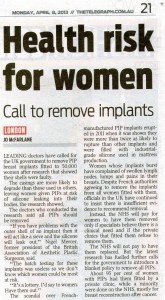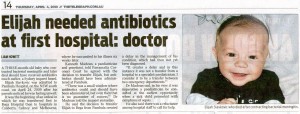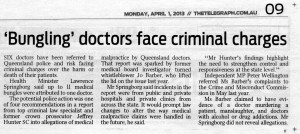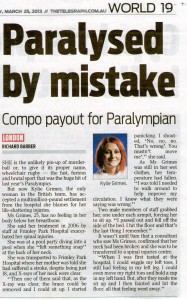Doctors were not to blame for the death of a Victorian baby who was transferred between 5 hospitals before dying from bacterial meningitis, a Sydney coroner has ruled.
Delivering her findings at Glebe Coroner’s Court today, deputy state coroner Carmel Forbes ruled the death of Elijah Slavkovic was due to “natural causes”.
He was initially admitted to Pambula Hospital on the NSW south coast, where the family was on holiday, on April 24, 2009, before being transferred to Bega District Hospital, Canberra, Sydney and finally Melbourne as his condition deteriorated.
In her findings, Ms Forbes said blame for Elijah’s death could not be apportioned to any of the medical staff that treated him.
“Elijah’s story does not reveal that any of his treating clinicians were uncaring or unskilled,” she said.
Outside the court, a patient advocate group described the findings as “disappointing”.
“I think Elijah’s mother and family would be very disappointed in the findings made today by the coroner,” Lorraine Long, founder of the Medical Error Action Group, told reporters.
“No clinicians unskilled? I don’t think so. The VMOs of both Pambula and Bega hospitals were unskilled.”
“Why should it take a case such as this to be on the front page of newspapers to make a change in the system?”
Ms Long said that while progress had been made in the health system since Elijah’s death, Bega and Pambula Hospitals remained “very much on the group’s radar”.
“We should have competent doctors in every country hospital,” she said.
—





